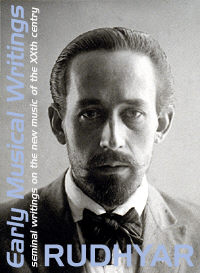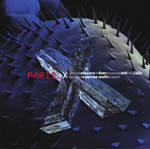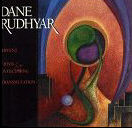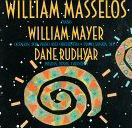 |
| Home | Bio | Art | Music | Literature | Civilization & Culture | Philosophy of Wholeness | Theosophy & Spirituality | Astrology |

'GOING BACK' IN MUSIC - TO WHERE?
D. Rudhyar Pro Musica Quarterly March 1927 This powerful article from 1927 is one of Rudhyar's most uncompromising and insightful criticism of musical neo-Classicism. In it Rudhyar proclaims the battlecry, "Back to Principles! - not to classic forms. Back to the Nature of Sound - not to tonalities." During the five years following Rudhyar's provocative article Musical Fascism, which appeared in 1922, the neo-Classical movement led by Stravinsky, Casella, Milhaud and others made deep inroads into respectability and acceptance by the "musical establishment" as an official music. To the neo-Classicists, music had been going in the wrong direction since the Romantic era of the early 19th Century, and the new music of the 1910s and the 1920s had gone so far astray that it was necessary to return to the glories of the classical era and its ideals and forms. From the earliest days of neo-Classicism, Rudhyar was its most ardent, articulate and vocal opponent, drawing convincing parallels between neo-Classicism in music - which Rudhyar called "Musical Fascism" - and nationalism and fascism in world politics. It is not because Rudhyar lost interest in music, or because he simply became an astrologer, that he vanished from the historical record of music after the 1920s, but because once neo-Classicism won hold of the musical establishment, there was no place for its strongest critic in the world of music. The Early Musical Writings of Dane Rudhyar are made available for students of musical history and for scholarly research. Rudhyar was concerned that composers, students and scholars should not regard his earliest writings and articles - written while he was still a young man - as his most significant literary contributions to music. The reader is referred to Rudhyar's book The Magic of Tone and the articles The Transforming Power of Tone and When Does Sound Become Music for his mature and fully developed contributions. |
|
Related Articles |
|
Archived Music Articles |
|
|
Also Available Online |
|
» Rudhyar's Integration of Experience and Concepts - Music, from Leyla Raël's The Essential Rudhyar. |
|
Available Offsite |
|
Musical Works |
|
Musical Scores |
|
For scores of Rudhyar's musical works, visit the site of the American Composers Alliance. Musical scores 5 Stanzas and Granites are also available from SheetMusicPlus.com |
|
Also of Interest |

The Music of Rudhyar & Satie PARIS-X Musica Obscura Richard Cameron-Wolfe, Piano. Hear a sound clip 
Piano and String Compositions AVENT, CRISIS & OVERCOMING, TRANSMUTATIONS Marcia Mikulak, Piano and The Kronos Quartet 
An Earlier Recording of Rudhyar's Music Now on CD MASSELOS PLAYS RUDHYAR |
|
Home » Music » Articles on Music  One of the most interesting and puzzling developments in the music of the past few years has been the persistent call coming from unwonted in quarters: "Let us go back to the past!" From strange quarters indeed this call was issued, louder as month followed month, from the very quarters which three or four years before had seemed the most revolutionary and the most eager in iconoclastic fury. Darius Milhaud was perhaps the first who, while in America, proclaimed the reactionary tendencies of the younger French school. In program notes written by himself he said: "One of the purposes of the younger French composers is to preserve the older and more perfect musical forms. We have gone back to the eighteenth century for our patterns. . . . Musical form reached its most perfect state in the symphonies of Beethoven and those composers who immediately precede him. Since then symphonies have become longer and longer until their proportions have become distorted. . . . It is a mistake to think of the younger French composers as revolutionists. We are adding to the old harmonies. We are expanding the old forms. But we are not striving to do away with the established order of things." At that time I pointed out in a couple of articles that this attitude ought to be called "musical fascism," that it was but one of the manifestations of the threat reactionary and hyper-nationalist movement which was sweeping through Europe, that it meant the closing tableau of European civilization, a prelude to threat final crash. Events, so far have shown the correctness of such an analysis. Political reaction is now triumphant all over Europe and in its wake musical reaction. I do not know one European composer who does not feel more or less the influence of this retrogression to the seventeenth and eighteenth centuries. Stravinsky has gone to the reactionary camp, hands and soul; Casella is one of the later but most ardent of its recruits and expounds the gospel of reaction without any ambiguity as well as the ideal of musical nationalism, as a true follower of Mussolini and of the fascist faith. Even Schoenberg returns early to classical models in spite of his somewhat modified atonalism. Hindemith in Germany is praised by Casella and others as the one Germanic composer to have freed himself from the shackle of romanticism, to have freed himself from the nineteenth century "disease" which perverted European music. Thus one may say without fear of contradiction that the whole of Western Europe music (that is, not mentioning Russia which is a rather unknown factor at present) is possessed by the one great longing to "go back" to that period, which saw the flowering of European classicism, that period in which the strictly unalloyed ideals and musical elements which characterize "Europeanism" in music ruled unquestioned. Thus Bach stands for these musicians as the one great Master, the pinnacle of musical expression. And logically so, for Bach is without any doubt the most typical and perfect embodiment of the European spirit in Music, or at least of that which may be considered the official and orthodox spirit of Europe — heretics and rebels being treated as a "disease"; the Romantics among them. To reject Bach as a model is equivalent to cut oneself asunder from the bosom of European music — a sort of musical excommunication. To deny that in him the true spirit of Music incarnated, is to declare European music as false to the highest mission of Music. The situation must be faced squarely. If music is and must remain objective, as Stravinsky and others want it to be; if it is first and foremost a "form," a "musical object" entirely represented by a score, the indications of which must be followed rigorously and without any possibility of re-creation by the interpreter; if it partakes entirely of the quality of "decorative art" and if the composer if best typified as an "artisan"; if the classical sense of interval, of linear counterpoint, the intellectual approach to composition and to formal development are to be considered as the very foundation of Music: if so, classical music is the musical paragon, and the best we moderns can do is to hold firm to this classical ideal, however new and varied the sonorous substance used by us may ever be. In other words classicism is the musical ideal; its musical philosophy is the musical philosophy, at least as far as Western races are concerned, or any races which really want to join the tide of progress and civilization. As a result all that which tends to destroy or distort this musical ideal is truly a disease, a perversion, or at best a sort of mental aberration. And the nineteenth century since the French revolution, since the proletarian upheavals, with its intense subjectivism, egocentrism, emotionalism, etc. was a great crisis, which brought nothing but disaster to the calm and beautiful perfection of European art and civilization. This is a definite attitude, logical, clear and perfectly legitimate. It is neither right or wrong in itself. It suits some people, and it ill fits others. It is an attitude; and everyone who cares to hold it and says so, is perfectly welcome to it. Only it is not the attitude which all people must take if healthy they be. It is a strictly European attitude, and the crux of the whole matter is whether or not one considers oneself as an European, that is if, physical birth notwithstanding, one wishes to identify oneself with the spirit of orthodox Europeanism, or not. If one wishes to do so, well and good. The obvious course to adopt is to follow Stravinsky and Casella and others in their neoclassical aspirations. If not, everything changes. Then romanticism ceases to be a disease, but the first glimpse of the true and higher world of music; the prenatal aspiration to a new and real tone-life which is slowly in the process of unfolding even here, on the new American soil. Europeanism, as a type and philosophy of civilization, is but the first or second act of something much bigger, Western civilization, the complement of another in the human whole, Eastern civilization. A first act, that is, a beginning, a chaotic and unfortunate one, during which most of the essential valuations of life have been perverted by an intellect-born sense of separateness, of nationalistic hatred and feudalism, of which tonalism and the like in music are but the reflection. Romanticism becomes the new dawn, the French revolution the bloody liberation from the shackles of feudalism, from the disease of scholasticism and cartesianism. And the child that was born is nothing else but the American civilization, which has already had its great poet, Walt Whitman and its great statesman, Lincoln and its great philosopher, Emerson, but which is still waiting for its great Musician. In other words the attitude is entirely reversed. Not that it takes away from the greatness of a Bach as a typical representative of European music. But it denies the fundamental usefulness of the European spirit as an inspiration for the new Generations; it contends that going back to the perfect models born of such a spirit and to the spirit itself, would mean for the American composer, that is for the musicians belonging by soul-right to the new Western continent and civilization, the poisoning of his source of inspiration, retrogression to the type, to the wild and dark state of European feudalism; be it political, economical or artistic feudalism. Europeans may do it and realize themselves as Europeans through it. But this would mean to the real American the death of his own American spiritual rights. But let it be clearly understood that this denunciation of European ideals, or rather of their educative value for the new musicians in America, does not mean in any way a belittlement of those great Artists who expressed themselves in a wonderful manner through and sometime in spite of the limitations of the substance and form which they were racially obliged to use. Great Individuals remain great whatever their clothes or the language they use may be. But ideals may be false; and if so must be attacked and destroyed. If they are false, or crude or demoralizing they must not be held as an inspiration to the future however necessary they might have been to the past in its effort towards self-expression. But let us come back to romanticism. Obviously it was a crisis; it was to a large degree chaotic and uncontrolled emotionalism. But chaos may mean an intense effort toward a new birth, the powerful stirring of a nature which has seen a new god — or it may mean disease and insanity, a fever in the blood which makes one lose all sense of proportions. Everyone must choose his own interpretation. Practically speaking, however, one thing is certain; romanticism being a chaotic condition must be overcome. If it is a disease it must be cured by restituting the true philosophy of health; and this is exactly what the modern reactionaries in music are doing. But if it is not a disease, but the disturbance and feverish condition preceding a birth, then the problem is different. The child is to be born; how will he be educated? what philosophy, what rules of conduct, what physical regime shall become his own? Being the parents, our educative responsibility must not be avoided. We must bring to him the knowledge of the true, the perception of the Beautiful, the sense of the Good. How shall we do it? How, if not by GOING BACK to the traditional fountain of knowledge, ethics and wisdom which belongs to Humanity, which flowed period after period from the Spiritual World through the Great Teachers of the race? As youths, as men and women we may have wandered in various ways in order to satisfy our personal idiosyncrasies. But as men and women we transform ourselves into fathers and mothers; we must leave aside our personal preferences, likes and dislikes and go back to the wisdom of old, to the immemorial tradition which can be found back of generation after, generation, which means here of civilization after civilization. Back to the eternal source of essential knowledge. The musical reactionist of today does not go back to the source, not even the source of European music. If he did, if he could study the music of the earlier centuries of Christianity, or the true ideals of the early Greeks, of Pythgoras — but not of his false disciple who distorted his outer teachings — some strange things might be encountered by him; even if he would only study the earlier masters of the thirteenth century like Perotin, study the philosophy of those men who built the cathedrals. But he does not do that. He does not go back to the sources, but to the river as it crosses majestically the metropolis, when the purity of the source is a far, very far remembrance only. The real educator of the future music must go to the source, to all sources. The source of European civilization and music is the first step; but a larger step he must still take; for European races are part and parcel of the great Indo-European Race, whose traditions and original Wisdom have remained preserved in the books of the Indian races, echoed in the books of the later Chinese and Egyptians, not to mention the many subsequent races whose records are still to be read, garbled as travelers' accounts may be, unreliable as most modern treatises unfortunately are. Back to Principles! — not to classical forms. Back to the Nature of Sound! — not to tonalities. Such must our battle cries be, if we believe that a new music is being born, and that, we, as fathers and mothers, must be progenitors and educators, that is, those — who give blood, and those who give Wisdom. Forms change and are purely relative and temporary values. But Principles, Numbers and Proportions do not. Scales and the way they are used, instruments and the manner in which they mould the substance of music, the approach to music itself change from race to race, civilization to civilization, continent to continent. But one thing remains, CHANGELESS, unaffected by human reaction: Sound. The Law of Sound is the musical absolute. This Law is, to use the ordinary and rather misleading term, the Harmonic Series. The Harmonic Series is the only thing which can be considered as an absolute canon of musical Proportions. But NOT in its superficial aspect. It has many aspects, which a real philosophical analysis alone can ever unveil. Scientists at present know only its physical mode of being; there exists also a metaphysical mode. And moreover the very intrinsic nature of sound itself, as a cosmic energy, is not understood, no theories being even offered as to the real nature of overtones, or as to the real wave in which sound travels through metals and dense materials, the undulation theory being obviously but an approximation both in the case of light and sound. What has this to do with music, and musical inspiration? may the reader exclaim, thus revealing that after all he is still romantic at heart and believes in this very mysterious thing called Inspiration. Evervthing. Of course if the composer wishes to remain an unconscious medium subjected to the fancy of his Muse, he is at liberty to know nothing about the material which he is dealing with. Of course also, the mere intellectual knowledge of abstract musical laws of sound-evolution will not make any one write a marvelous tone-poem or symphonic, ensemble of any description. But the point is that at present our main task is to be pro-creators and educators — or else helpless babes running wild into the jungle of cultural forces, at the mercy of any collective emotional current, nationalistic, religious or what not. In other words if we want really to build a musical culture on real Foundations we must know the Laws of building, the Laws of the materials we, use, the Laws of Harmony, not in a textbook sense, but in a cosmic sense as it is revealed to us by Nature philosophically understood. We must STUDY, not European theories about music, but MUSIC, in a permanent, changeless, universal sense. And that is another way of "going back." Because in all ancient civilizations, those who took upon themselves the great and momentous responsibility of producing music for their race, knew the laws of music and sound, or at least as much of those laws as was possible to know. Go to India before the decadence, to old China, to Egypt, to the Greece of the time of Pythagoras, and you will find that there music was built on knowledge, philosophical and even occult knowledge of the nature and potency of Sound. We want to "go back" to that knowledge; for it is only on that rock of knowledge that the foundations of the New Music of and in America can stand. Europe stands back of us who see towards the dawning sun; for there are moments when the sense of rotation changeless, as the Far West becomes the Far East. The source of Europeanism is as true as of any civilization; but this source was Asiatic, was Syrian. Even the Greek Pythagoras was born on Asiatic soil; so the great musical Gnostic, whose name ought to be revered as the name of the Father of Christian European music, Bardesanes or Bar Daisan. The true Europe was the Europe of the heretics, of the rebels who were persecuted, killed, defamed. It is this Europe of rebels, unorthodox, hunted down Europe which founded the United States. That was the real Europe.  Home | About | Calendar | Ephemeris Charts | Art Gallery | Library | Resources Shop | Links | Rudhyar Archival Project | Help Web design and all data, text and graphics appearing on this site are protected by US and International Copyright and are not to be reproduced, distributed, circulated, offered for sale, or given away, in any form, by any means, electronic or conventional. See Notices for full copyright statement and conditions of use. Web design copyright © 2000-2004 by Michael R. Meyer. All Rights Reserved. |